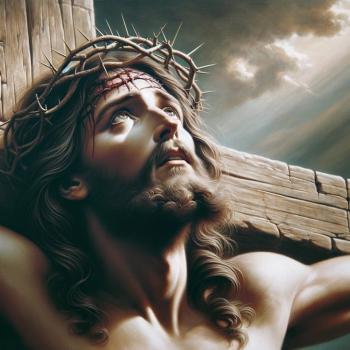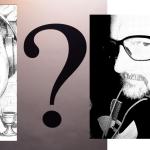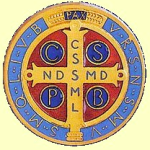
I have just a few quick words about Christopher Tolkien, who died Thursday, aged 95.
Christopher Tolkien will go down in history as a person who left behind a mighty literary legacy—of writings that were not his own. Rather, as the literary executor of his father, J.R.R. Tolkien, Mr. Tolkien edited and published almost two dozen of his father’s works after the elder Tolkien died in 1973.
The most enduring of these is The Silmarillion, published in 1977, the fruit of four years of Mr. Tolkien laboring on and organizing his father’s manuscripts. According to the New York Times, Tolkien scholars and fans around the world wondered just how much of The Silmarillion was his father’s work and how much was Christopher’s. As resourceful as a hobbit, Mr. Tolkien answered thusly:
In response, Christopher produced the 12-volume “The History of Middle-earth” (1996), a compilation of drafts, fragments, rewrites, marginal notes and other writings culled from 70 boxes of unpublished material. It showed that virtually everything he had published had come from his father’s hand.
Prior to that, as a sort of appetizer, Mr. Tolkien published Unfinished Tales (1980), a collection of unpublished stories from each of the three Ages of Middle Earth, accompanied by commentary by Mr. Tolkien. In the 21st century, Mr. Tolkien published another half dozen of his father’s works, ranging from stories from the First Age of Middle Earth, to Arthurian legends, to his father’s translation of Beowulf.
The Silmarillion
I want to focus here on The Silmarillion. This, along with The Lord of the Rings and The Hobbit, is what I spent most of 1990 reading. These books changed my life. They inspired me to return to regular practice of my Catholic faith, after almost a decade away. And looking back, I think I can pinpoint the exact time when I, then a far-right conservative, began ever so slowly to inch leftward. It was the first time I read this passage in The Fellowship of the Ring, when Gandalf admonishes Frodo, who has just said that Gollum deserves death:
‘Deserves it! I daresay he does. Many that live deserve death. And some that die deserve life. Can you give it to them? Then do not be too eager to deal out death in judgment. For even the very wise cannot see all ends.’
“Even the wise cannot see all ends” would make a good subtitle of The Silmarillion. It is a story of hubris and pride, and especially avarice, and of how ruinous these vices are. We see it in the opening paragraphs, with the first rebellion of Melkor at the beginning of creation. We see it in Aulë the Smith, a mighty Valar, who grows impatient for Ilúvatar’s plan for creation.
And we see it in Fëanor, greatest of the Elves, who leads a great host of them in rebellion against the Valar—in a dispute over jewels:
Then Fëanor swore a terrible oath. His seven sons leapt straight-way to his side and took the selfsame vow together…. calling the Everlasting Dark upon them if they kept it not; and Manwë they named in witness, and Varda, and the hallowed mountain of Taniquetil, vowing to pursue with vengeance and hatred to the ends of the World Vala, Demon, Elf, or Man as yet unborn, or any creature, great or small, good or evil, that time should bring forth unto the end of days, whoso should hold or take or keep a Silmaril from their possession.
For this, Fëanor and all who followed him in rebellion fell under the Doom of Mandos:
‘Tears unnumbered ye shall shed; and the Valar will fence Valinor against you, and shut you out, so that not even the echo of your lamentation shall pass over the mountains. On the house of Fëanor the wrath of the Valar lieth from the West unto the uttermost East, and upon all that follow them it shall be laid also. Their Oath shall drive them, and yet betray them, and ever snatch away the very treasures they have sworn to pursue. To evil end shall all things turn that they begin well; and by treason of kin unto kin, and the fear of treason, shall this come to pass. The Dispossessed shall they be forever.
‘Ye have spilled the blood of your kindred unrighteously and have stained the land of Aman. For blood ye shall render blood, and beyond Aman ye shall dwell in Death’s shadow.’
Doom and hope
There is more to the Doom, but these two paragraphs mostly sum up the rest of The Silmarillion: heroic yet vain effort, followed by tragic loss, again and again and again. It also sums up the story of us, of humanity. For our story is a story of tears unnumbered, of blood rendered for blood shed unrighteously, of treason of kin unto kin, of all things turning evil that we begin well, of dwelling in death’s shadow. The Dispossessed? That is us.
I said, “mostly,” however, because it is not all the rest of The Silmarillion. Prof. Tolkien was too much of a Catholic to not leave a glimmer of hope, a protoevangelium—a rumor of Good News—for the beleaguered souls, Elf and Man, suffering in Middle Earth. When Morgoth has laid waste to the land and the forces who opposed him are scattered, Prof. Tolkien tells us of Beren and Luthien:
Among the tales of sorrow and ruin that come down to us from the darkness of those days, there are yet some in which amid weeping there is joy and under the shadow of death light that endures. And of these histories, most fair still in the ears of the Elves is the tale of Beren and Luthien. Of their lives was made the Lay of Leithian, Release from Bondage….
I know my life would be much darker if those words had never seen the light of day. Thank you, Christopher Tolkien, for making sure they did. Receive the gift of men, the gift of Ilúvatar, and await that time when “Men shall join in the Second Music of the Ainur.”
















